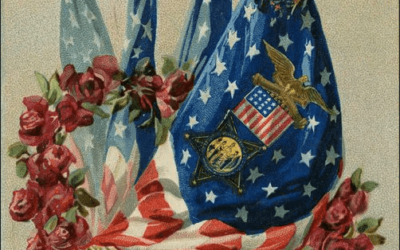The unfortunate Civil War soldier, whether he came from the North or South, not only was in the army when the killing power of weapons was being brought to a brand-new peak of efficiency; he enlisted in the closing years of an era when the science of medicine was woefully, incredibly imperfect. Efficient weapons and a very poor quality of medicine, for every wound and natural ailment, destined the soldier to increased suffering. . When he fought, he was likely to be hurt pretty badly; when he stayed in camp, he lived under conditions that were very likely to make him sick; and in either case he had almost no chance to get the kind of medical treatment which a generation or so later would be routine.
Both the Federal and Confederate governments did their best to provide proper medical care for their soldiers, but even the best was not very good. This was nobody’s fault. There simply was no such thing as good medical care in that age — at least as the modern era understands the expression.
The first enemy the soldiers faced was disease. Healthy recruits became victims of illnesses that were easily spread due to the large number of people in the camps, the often unsanitary conditions, and the poor diet of the soldiers. Childhood diseases such as measles could devastate regiments and many men succumbed to diarrhea and dysentery. Of the nearly 620,000 soldiers who died during the Civil War, two-thirds died not of bullets and bayonets, but of disease.
There is a vast amount of information on the Internet about medicine and medical practices of the period. The U.S. Sanitary Commission website contains information on how they raised money and supplies to help care for the sick and wounded soldiers.There is an excellent series of lessons entitled, “Challenges of Health Care During the Civil War”, which provides students with statistical data on the different types of injuries and diseases. This data could then entered into a spreadsheet and used to produce results such as percentages and averages. Additionally, the U.S. Civil War Center at Louisiana State University has, among other topics, an extensive list of sites specific to Civil War ear medicine.
Finally, the National Museum of Civil War Medicine has some excellent information on Civil War era medicine.
UPDATED 8/1/09: More Good Links
Caring for the Men, the History of Civil War Medicine
http://www.civilwarhome.com/medicinehistory.htm
Civil War Medicine
http://www.library.vcu.edu/tml/bibs/cwmed.html
Cyndi’s List of Genealogy Sites on the Internet: Medical and Medicine
http://www.cyndislist.com/medical.htm
eHistory.com – Medicine: More Civil War Medical Terms
http://www.ehistory.com/uscw/features/medicine/cwsurgeon/medicalterms.cfm
eHistory.com – Statistics on the Civil War and Medicine
http://www.ehistory.com/uscw/features/medicine/cwsurgeon/statistics.cfm




0 Comments